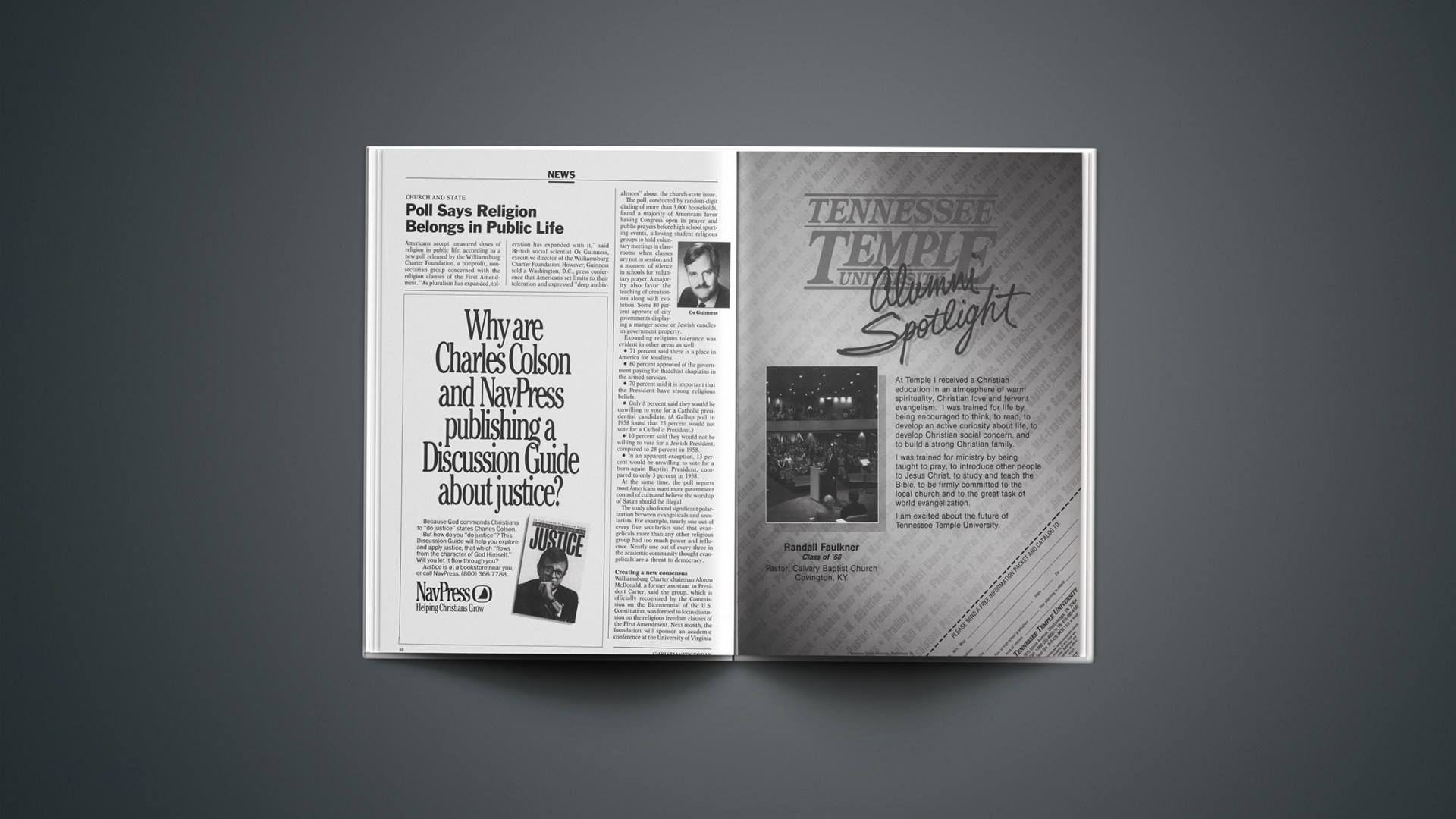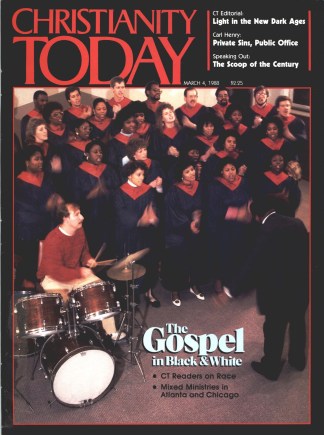Americans accept measured doses of religion in public life, according to a new poll released by the Williamsburg Charter Foundation, a nonprofit, nonsectarian group concerned with the religion clauses of the First Amendment. “As pluralism has expanded, toleration has expanded with it,” said British social scientist Os Guinness, executive director of the Williamsburg Charter Foundation. However, Guinness told a Washington, D.C., press conference that Americans set limits to their toleration and expressed “deep ambivalences” about the church-state issue.
The poll, conducted by random-digit dialing of more than 3,000 households, found a majority of Americans favor having Congress open in prayer and public prayers before high school sporting events, allowing student religious groups to hold voluntary meetings in classrooms when classes are not in session and a moment of silence in schools for voluntary prayer. A majority also favor the teaching of creationism along with evolution. Some 80 percent approve of city governments displaying a manger scene or Jewish candles on government property.
Expanding religious tolerance was evident in other areas as well:
- 71 percent said there is a place in America for Muslims.
- 60 percent approved of the government paying for Buddhist chaplains in the armed services.
- 70 percent said it is important that the President have strong religious beliefs.
- Only 8 percent said they would be unwilling to vote for a Catholic presidential candidate. (A Gallup poll in 1958 found that 25 percent would not vote for a Catholic President.)
- 10 percent said they would not be willing to vote for a Jewish President, compared to 28 percent in 1958.
- In an apparent exception, 13 percent would be unwilling to vote for a born-again Baptist President, compared to only 3 percent in 1958.
At the same time, the poll reports most Americans want more government control of cults and believe the worship of Satan should be illegal.
The study also found significant polarization between evangelicals and secularists. For example, nearly one out of every five secularists said that evangelicals more than any other religious group had too much power and influence. Nearly one out of every three in the academic community thought evangelicals are a threat to democracy.
Creating A New Consensus
Williamsburg Charter chairman Alonzo McDonald, a former assistant to President Carter, said the group, which is officially recognized by the Commission on the Bicentennial of the U.S. Constitution, was formed to focus discussion on the religious freedom clauses of the First Amendment. Next month, the foundation will sponsor an academic conference at the University of Virginia on the issues raised by the poll.
The foundation’s major thrust, however, is the drafting of “The Williamsburg Charter.” The group says the document will “celebrate the genius of the First Amendment,” “reaffirm freedom of conscience for people of all faiths and no faiths,” and “work for a consensus on the place of religion in public life.” On June 25—the two hundredth anniversary of Virginia’s public call for a bill of rights—the document will be signed by American dignitaries during a celebration summit in Williamsburg.
Members of the committee include Arie Brouwer, general secretary of the National Council of Churches; Archbishop John L. May, president of the National Conference of Catholic Bishops; Rabbi Joshua Haberman, president, Foundation for Jewish Studies; Billy Graham; U.S. Senators William Armstrong (R-Colo.), Dennis DeConcini (D-Ariz.), Mark Hatfield (R-Oreg.), Daniel Moynihan (D-N.Y.), and Ted Stevens (R-Alaska).
“There’s no pretense that the people believe the same things or agree on the same policy proposals or share the same philosophical understandings of either beliefs or policies,” said Guinness.










